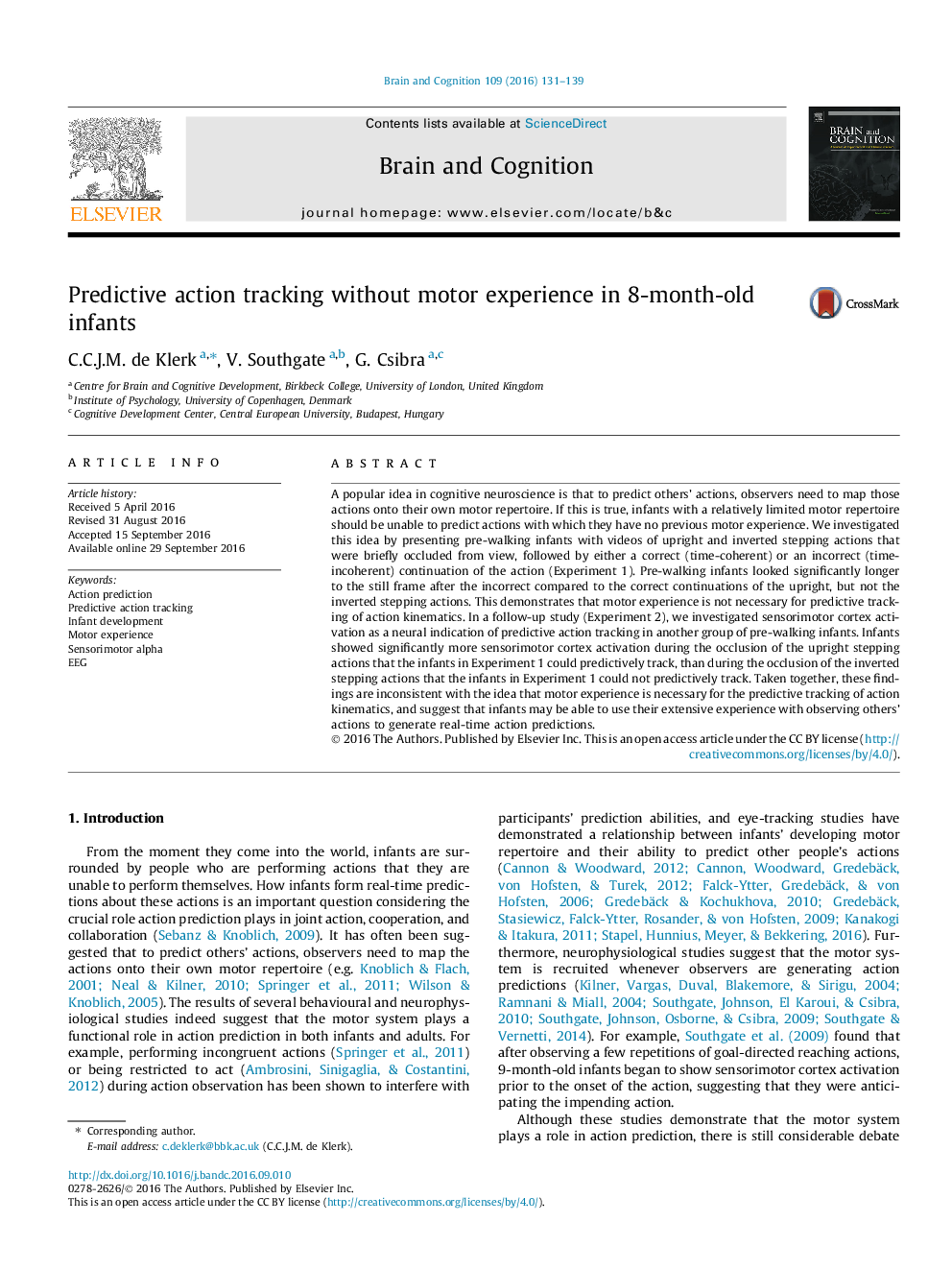| Article ID | Journal | Published Year | Pages | File Type |
|---|---|---|---|---|
| 5041174 | Brain and Cognition | 2016 | 9 Pages |
â¢Can infants predictively track the kinematics of actions outside their motor repertoire?â¢Pre-walking infants predictively tracked upright, but not inverted stepping actions.â¢Sensorimotor cortex was activated more when infants observed upright stepping actions.â¢Motor experience is not necessary for predictive tracking of action kinematics.
A popular idea in cognitive neuroscience is that to predict others' actions, observers need to map those actions onto their own motor repertoire. If this is true, infants with a relatively limited motor repertoire should be unable to predict actions with which they have no previous motor experience. We investigated this idea by presenting pre-walking infants with videos of upright and inverted stepping actions that were briefly occluded from view, followed by either a correct (time-coherent) or an incorrect (time-incoherent) continuation of the action (Experiment 1). Pre-walking infants looked significantly longer to the still frame after the incorrect compared to the correct continuations of the upright, but not the inverted stepping actions. This demonstrates that motor experience is not necessary for predictive tracking of action kinematics. In a follow-up study (Experiment 2), we investigated sensorimotor cortex activation as a neural indication of predictive action tracking in another group of pre-walking infants. Infants showed significantly more sensorimotor cortex activation during the occlusion of the upright stepping actions that the infants in Experiment 1 could predictively track, than during the occlusion of the inverted stepping actions that the infants in Experiment 1 could not predictively track. Taken together, these findings are inconsistent with the idea that motor experience is necessary for the predictive tracking of action kinematics, and suggest that infants may be able to use their extensive experience with observing others' actions to generate real-time action predictions.
